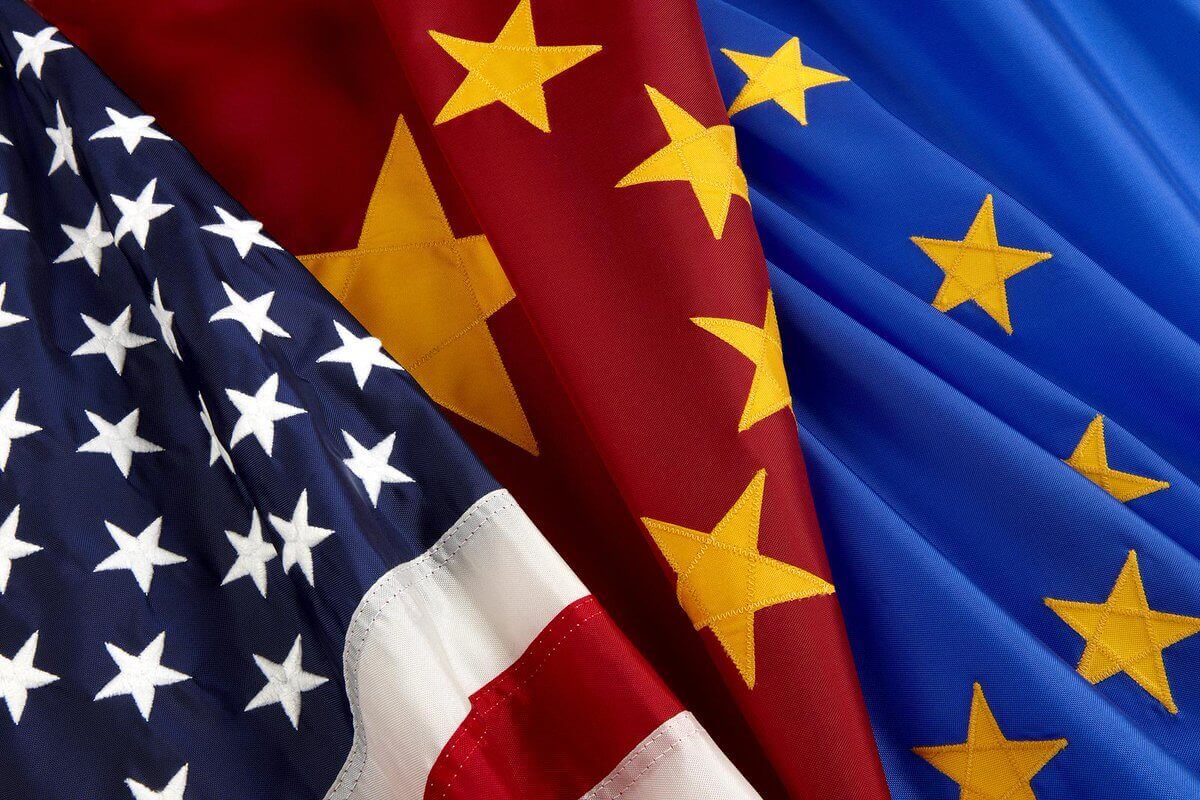Last Thursday, the National People’s Congress Standing Committee (NPCSC) of China passed the anti-sanctions law to defend against punitive measures by Western governments. The new law took effect almost immediately and includes stringent retaliatory measures that Beijing can take against businesses and individuals even remotely involved in placing or following the sanctions imposed on China by foreign governments. This legal apparatus defends Beijing’s interests by refusing visas, denying entry, deportation, and the “sealing, seizing, and freezing property of individuals or businesses that adhere to foreign sanctions against Chinese businesses or officials.” Further, the text of the law is vague and extends even to family members of those directly sanctioned by the Chinese government. However, while the measure is intended to be a defence mechanism against Western pressure, can Beijing actually be expected to invoke an ostensibly self-harming law?
It is no secret that China has been keen on expanding foreign investment in its market. To this end, it has sought to expand multilateral trade agreements such as the Regional Comprehensive Economic Partnership (RCEP) in the Asia-Pacific and the Comprehensive Agreement on Investment (CAI) with the European Union (EU). In this light, the anti-sanctions law could potentially damage the attractiveness of China’s business environment. If the new law is put into practice, foreign businesses and investors in China would be forced to choose whether they want to pay heed to foreign sanctions and lose the huge market that China offers, or play by Chinese rules and forgo their profits in lucrative American and European markets.
Although it remains unclear whether this will apply to China’s financial hubs Hong Kong and Macau, the dilemma raised by this new wide-ranging legal tool places those wanting to invest in China between a rock and a hard place. The clauses make it clear that China is willing to use foreign companies as sacrificial paws in its political battles. Reflecting the resulting apprehension regarding investing in China, the European Chamber’s latest business confidence survey released this week showed that 41% of respondents said that China’s business environment had become more politicised over that last year. Moreover, most expected no positive change in the situation or further deterioration over the coming year.
However, this deteriorating business outlook has not stopped China from pursuing its tit-for-tat strategy. In response to every sanction imposed on it, China has criticised the West of being unjust and unnecessarily meddling in its “internal matters” and even retaliated with counter-sanctions and bans. This time around, however, as soon as the new administration in Washington hinted that it would not be softening its approach towards China by introducing sweeping legislation that authorised new sanctions on Chinese officials over cyberattacks, intellectual property theft, and human rights violations, China wasted no time in tabling the anti-sanctions law. In fact, the new law has been under formulation since the Trump era, when the US-China trade war was at its peak, indicating China’s long-standing plan to put an end to, or at least cushion the blow of, the West’s moral policing.
The only other recent law that was passed with such urgency was the controversial National Security Law (NSL) in Hong Kong. Like the NSL, the anti-sanction law was also passed after only two readings after being tabled, instead of the usual three. China’s state-owned media house Global Times explained the expedited nature of the passage of these laws by saying that if consensus is achieved on all aspects of a law’s draft, it can be reviewed only twice. Moreover, the NSL was put into practice despite severe international push-back; hundreds of pro-democracy activists have been arrested, tried, or threatened since its implementation in 2020.
Furthermore, like the anti-sanctions law, the NSL, too, was also expected to harm businesses, as it gives the Hong Kong Police Force the authority to “search premises and electronic devices, freeze assets, seize travel documents and force internet service providers to delete information or “provide assistance” in the course of a national security investigation.” Such measures and the resulting foreign sanctions did little to paint China’s financial hub as an attractive location for foreign investment.
Similarly, China has also shown no reluctance in invoking the controversial cyber law that was passed in 2017. The law mandates strict data surveillance and storage for firms in China and requires them to store their data locally and be subject to contentious security reviews, which critics feared could unfairly target foreign firms. In fact, companies like Skype and WhatsApp refused to store their data locally and were temporarily banned from operating in China and restrained from further expansion.
If this is any foreshadowing for what is in store for foreign businesses, it is unlikely that China will hold back from implementing the anti-sanctions law, even in the face of foreign pressure and economic damage. China has historically not hesitated to both pass and invoke laws that are seemingly double-edged swords. In doing so, it has demonstrated its seemingly unwavering commitment to its political objectives even at the risk of its economy. Outside of what this means for foreign investment, residents in Hong Kong, Xinjiang, and indeed across China, are no doubt looking at these developments with the growing and worrying recognition that there is little foreign actors can do to deter China’s human rights violations.
Despite the Economic Risks, China Will Not Hesitate to Use Its New Anti-Sanctions Law
China’s past record shows that it has full intention of utilising its new anti-sanctions law despite the risk that it will further deteriorate its already politicised business environment.
June 18, 2021

SOURCE: CEIAS
